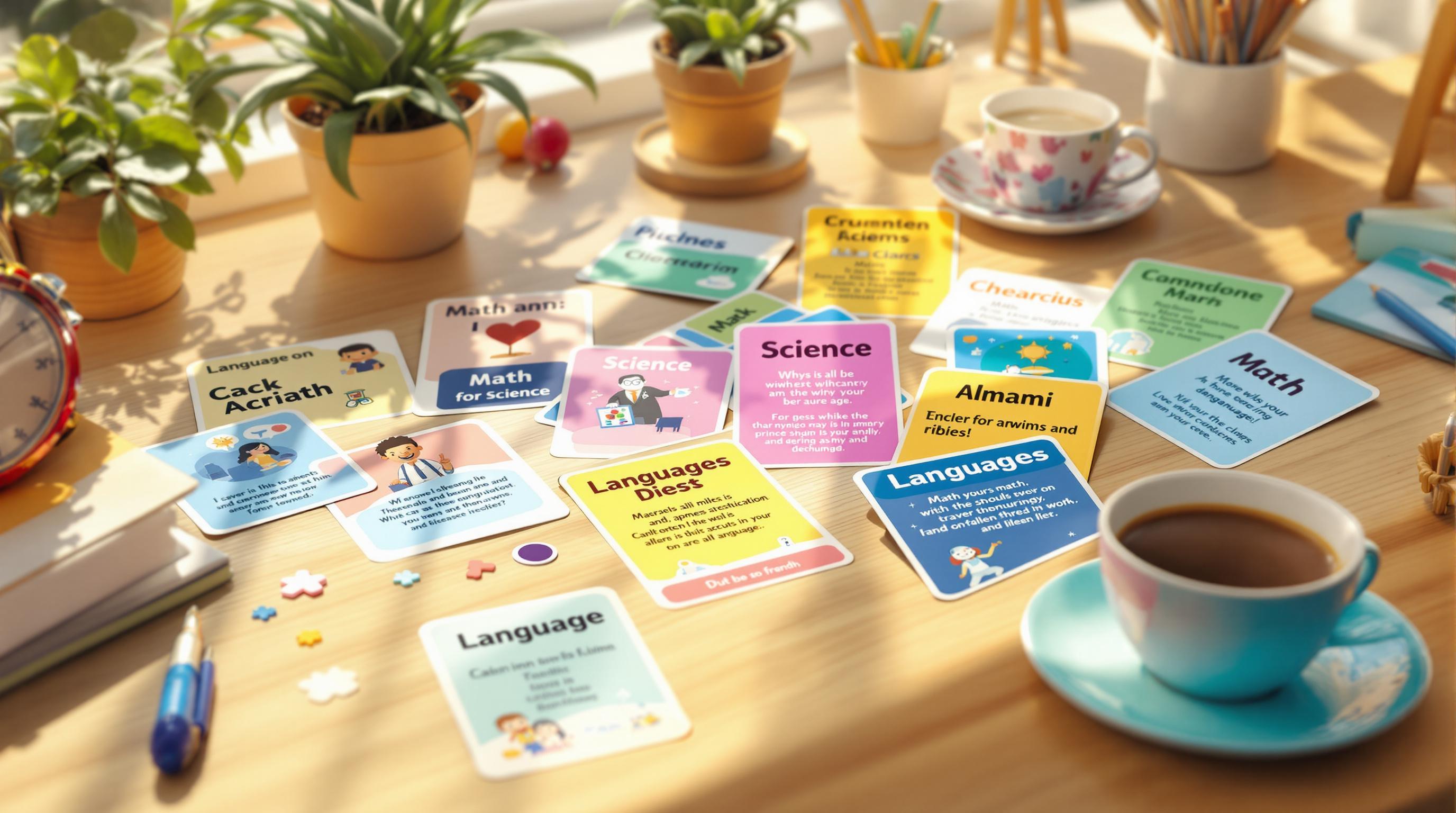Making Intelligent Digital Flashcards for Any Topic
Traditional flashcards have become high-tech in today's rapid-fire digital learning environment. When created correctly, digital flashcards have been demonstrated to be more intelligent, engaging, and scientifically proven to improve memory retention. No matter if you are learning mathematics, history, languages, or biology, making intelligent digital flashcards may revolutionize your revision approach and make learning more interesting.
Here is a step-by-step tutorial on how to design effective digital flashcards for any topic.
The reason digital flashcards are effective
Two potent learning strategies are combined in digital flashcards:
Spaced Repetition - presenting cards at intervals that reinforce long-term memory
Active Recall – forcing your mind to recall knowledge, which improves neural connections
These principles are used by applications like Quizlet, Brainscape, and Anki to make learning less intimidating and more productive.
Step-by-Step Instructions for Making Intelligent Digital Flashcards
1. Reduce Ideas to Manageable Bits
Avoid putting too much information on your cards. Each card should address a single fact, idea, or question.
Example:
What is the cell's powerhouse?
Back: The mitochondrion.
2. Use straightforward, clear language.
Unless you're actively learning terminology, stay away from using jargon. Pretend you're talking to your former self when you write.
Smart Tip: Use your own words; it aids with comprehension and memory.
3. Include diagrams or images.
Memory is improved by visuals. You may add images, graphs, or even audio to many flashcard applications.
An illustration of the water cycle or a human heart can be included while learning science.
4. Ask questions that are active rather than passive.
Ask how, why, or what if to encourage more thought rather than merely remembering facts.
Define osmosis as a passive process.
What would happen to an active cell in a saline solution?
5. Utilize spaced repetition software (SRS).
Based on how well you recall each card, applications such as Anki will automatically plan reviews for you.
Benefit: You see hard cards more frequently and ones that you have mastered less often, increasing efficiency.
6. Arrange the cards by topic or chapter.
Before examinations or quizzes, arrange your decks in a logical order so that you may concentrate on particular topics.
Within your science course, you may, for instance, create distinct decks for Organic Chemistry, Evolution, and Cell Biology.
Use Tags for Easy Searching
Tagging is a feature of most flashcard programs. Tagging aids in filtering cards according to subject, date, degree of difficulty, or chapter.
An illustration of how tags like "Exam 1," "Important," or "Difficult" may help expedite reviews.
Regularly review and modify number 8.
Learning develops. As you go along, update or remove cards that are no longer useful or that are inaccurate.
Tip: Avoid cramming. For long-term retention, maintain a daily spaced review schedule.
Bonus: The Top Software for Making Digital Flashcards
Ideal for: Tools
Anki LaTeX for math, SRS, plugins, and advanced learners
Quizlet For novices and groups Shared decks, pictures, games
Confidence-based repetition, speed learners, and Brainscape
StudySmarter Flashcards and organized notes Diagrams, notes, and decks are synced
RemNote
Topics that work well with digital flashcards
Vocabulary (Languages, GRE, IELTS)
✔ Formulas (Chemistry, Physics, Mathematics)
Historical Dates and Events
✔ Diagrams of Anatomy and Biology
✔ Principles and Syntax of Programming
At last, some advice
20 minutes a day is sufficient; make sure your sessions are brief and centered.
Combine with active learning methods such as self-quizzing and practice exams.
Be consistent. Learning is enhanced by frequent review.
Grasp the "why" behind each card rather than just memorizing it.
Concluding Remarks
Smart digital flashcards are a cognitive science-based learning approach rather than simply a study aid. They provide you an advantage over conventional approaches, whether you're studying for finals or attempting to learn a new topic.
Therefore, select your app, make your first deck, and begin improving your mind, one card at a time.f


Post a Comment
0Comments